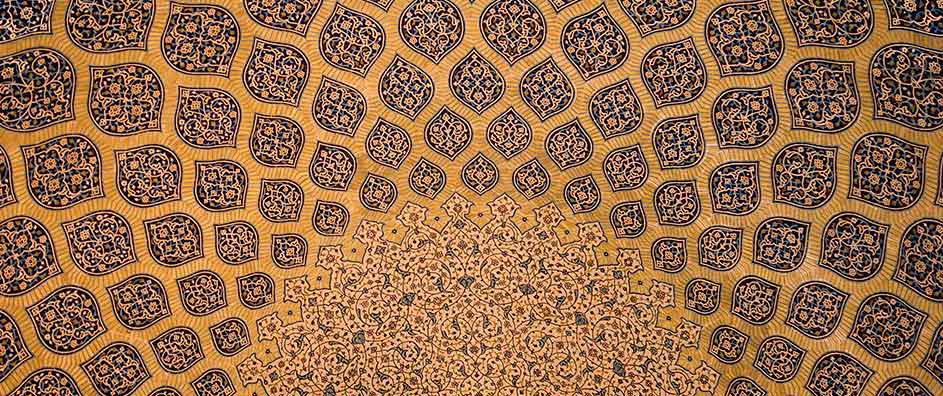In the annals of religious history, few figures have faced the tempest of misunderstanding and condemnation quite like Baha’u’llah, the founder of the Bahá’í Faith. Examining the challenges he encountered, particularly from the Mullahs—Muslim clerics—who sought to discredit his revelation, offers an intriguing perspective on the intersection of faith, authority, and societal change. How does one maintain steadfastness in the face of opposition from established religious authorities? This question encapsulates the struggle Baha’u’llah endured as he championed a message of unity and spiritual awakening.
To comprehend Baha’u’llah’s plight, it is essential to delve into the sociopolitical milieu of 19th-century Persia. The Mullahs wielded significant influence, closely intertwined with the power structures of both church and state. Seen as guardians of traditional Islamic doctrine, they perceived Baha’u’llah’s teachings as a direct affront to their theological stature. What drives individuals in positions of power to perceive alternatives as threats? This quandary often results in harsh opposition rather than constructive dialogue.
As Baha’u’llah began proclaiming his mission, he did so within a framework designed to challenge prevailing norms. He articulated principles of equality, justice, and the oneness of humanity—ideas that resonated with the disenfranchised but unnerved the status quo. The Mullahs, fearing the erosion of their authority, embarked on a campaign to discredit him. They labeled him as a heretic, a charlatan, and the source of societal discord. This tactical move was not merely a reflection of their theological disagreements but a manifestation of the fear that rapid social change can evoke in established power dynamics.
In many respects, the Mullahs’ attempts to undermine Baha’u’llah serve as a microcosm of broader societal resistance to transformative ideas. When faced with revolutionary ideologies, authority figures often resort to disinformation, manipulating narratives to safeguard their interests. Such tactics have been observed throughout history, from the Roman persecutions of early Christians to the contemporary struggles of modern spiritual movements. How can a burgeoning faith counteract these narratives? Baha’u’llah’s response lay in the very essence of his teachings.
Despite the Mullahs’ smear campaigns, Baha’u’llah remained unyielded. He emphasized the importance of evidentiary service through actions rather than mere rhetoric. His life exemplified integrity, as he consistently enacted the values he preached. Furthermore, he encouraged his followers to embody principles of love, compassion, and resilience in the face of adversity. This commitment to demonstrating the validity of his teachings through ethical conduct proved pivotal in garnering a community of adherents who, enamored by his authenticity, began to stand against the Mullahs’ disparaging claims.
Within the discourse surrounding Baha’u’llah, it is crucial to recognize the multifaceted nature of those who opposed him. While the Mullahs represented institutionalized religion, the broader societal context included various factions that either supported or criticized his initiatives. Some scholars and enlightened individuals were intrigued by Baha’u’llah’s radical ideas, while others adhered staunchly to traditional paradigms. The divergence in opinions creates a rich tapestry of engagement that contributes significantly to understanding the complexities of religious dynamics. What if, rather than opposition, there was an opportunity for ecumenical discussions? This hypothetical scenario underscores the potential for unity amidst diversity.
As the situation escalated, Baha’u’llah faced expulsion and imprisonment, highlighting another layer to his narrative. His exile and suffering are emblematic of the trials faced by countless prophets and reformers throughout history. However, rather than succumbing to bitterness, Baha’u’llah utilized these experiences to further articulate his vision for a spiritually renewed humanity. In this sense, his imprisonment became an incubator for profound revelations—giving rise to writings that continue to inspire millions globally. How does one transform personal suffering into a catalyst for collective enlightenment?
The legacy of Baha’u’llah and the Mullahs serves as a poignant reminder of the enduring struggle between progressive and conservative ideologies in the realm of faith. As contemporary society grapples with similar challenges—the proliferation of misinformation and the tendency to ostracize divergent beliefs—Baha’u’llah’s example becomes increasingly relevant. His teachings advocate for the courage to uphold truth amid hostility, bridging divides, and fostering understanding.
Ultimately, the story of Baha’u’llah and the Mullahs underscores a critical question: can transformative leaders coalesce their influential roles with the institutions that originally sought to suppress them? The answer, informed by history, is nuanced and complex. It beckons an exploration of compassion, dialogue, and the overarching need for spiritual evolution. Just as Baha’u’llah persisted in his mission despite formidable opposition, so too can contemporary seekers of truth aspire to navigate the rocky terrain of ideological variance with grace and understanding.
In conclusion, the narrative surrounding Baha’u’llah and the Mullahs invites society to reflect on the perennial contestations between authority and innovation in faith. The dynamic interplay between the two serves not only as a reminder of the courage required to affirm one’s beliefs but also as an invitation to engage in thoughtful discourse that upholds the principles of unity and humanity.
